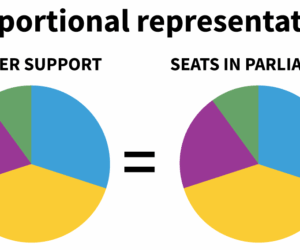After 11 years, it is reassuring that the federal government has restated its commitment to the rescue of the remaining abducted Chibok schoolgirls, and Leah Sharibu. The government also assured Nigerians that in spite of the passage of time, the girls have not been forgotten. The National Coordinator of the National Counter Terrorism Centre (NCTC), Office of the National Security Adviser, Major-General Adamu Laka, stated this while speaking during a multi-agency meeting on anti-kidnapping organised in collaboration with the United Kingdom’s National Crime Agency in Abuja.
The British Deputy High Commissioner to Nigeria, Ms Gill Lever, who spoke at the event, decried the recent killing of 38 kidnapped victims in Zamfara State after the reported payment of N50million ransom. Apart from pledging UK’s support to help Nigeria tackle kidnapping and related insecurity, Lever said: ‘This level of brutality damages people’s mental health, retards economic progress, and tears apart communities. We must end this.’
We recall that on April 14, 2014, no fewer than 276 schoolgirls of Government Girls’ Secondary School in Chibok, Borno State, were abducted by Boko Haram terrorists during the administration of ex-President Goodluck Jonathan. Their abduction elicited international outrage. Nigerians were equally shocked by the ugly development. While some of the girls escaped by jumping out of the trucks of the abductors, the government rescued many others. Despite the government’s rescue efforts, 87 of the schoolgirls are yet to be rescued. They are still languishing in Boko Haram’s captivity.
Apart from the Chibok schoolgirls’ abduction saga, Nigeria has witnessed frequent abduction of school children in the North-East zone and others.
For instance, on February 19, 2018, about 110 schoolgirls, including Leah Sharibu, were kidnapped from Government Girls’ Science and Technical College, Dapchi, Yobe State, by Islamic State West Africa Province (ISWAP) fighters. Unfortunately, while the other girls were released, Leah Sharibu, the only Christian among them, is still languishing in ISWAP captivity. The NTCT boss also assured Nigerians that the government, the armed forces and other security agencies have not relented in efforts to rescue the remaining Chibok schoolgirls and other kidnapped Nigerians. He revealed that some aid workers from UNHCR, IOM and some of the Chibok girls were rescued through a combination of negotiations and operations by the government.
“We are still actively pursuing the rescue of the 87 girls and Leah Sharibu. The fact that we are not in the news every day should not be interpreted as abandonment,” Laka reiterated. “We are building direct operational linkages between the Fusion Cell and state commands across the country. This will strengthen early warning systems, improve intelligence sharing, and accelerate response times,” he also stated.
We commend the federal government for its avowed commitment to rescuing the remaining 87 abducted Chibok girls and Leah Sharibu and others languishing in captivity of their abductors. We also urge the government and the security agencies to hasten the pace of the rescue efforts so that these victims of abduction and kidnapping will regain their freedom soon. There should be an end to this saga of abduction and kidnapping for ransom payment.
Since abduction and kidnapping are further aggravating the nation’s security challenges, we implore the federal government to begin to aggressively address the triggers of the rising insecurity and bloodletting across the country. The triggers of insecurity include unequal distribution of the national wealth, mass poverty, unemployment, hunger and starvation. Apart from a few uncoordinated poverty alleviation programmes of the federal government, the state governments have not done much to reduce poverty and unemployment in their domains.
Sadly, the local governments cannot really do anything in this regard because the state governors have financially emasculated them by controlling the resources of the councils despite Supreme Court’s ruling on financial autonomy for the 774 local governments in the country. Also, the proliferation of millions of illegal weapons in West Africa and Nigeria has exacerbated the security challenge because these weapons are in the hands of non-state actors who use them to commit sundry crimes.
Last month, the Chief of Defence Staff (CDS), General Christopher Musa, raised the alarm that over 500 million illicit small arms and light weapons are circulating in West Africa, and an estimated 40 per cent of these weapons end up in Nigeria. He decried that ‘these weapons, often smuggled from conflict zones in the Sahel and North Africa, have empowered terrorists, bandits, and ethnic militias, escalating violence in Nigeria’s northern regions.’
We also agree with Musa that ‘a multi-agency approach to security management, as outlined in Nigeria’s National Defence Policy; enhanced border security, with the use of fencing, surveillance technology, and better trained personnel,’ will enable us overcome our extant security challenges. Besides, the provision of the much-needed good governance at all levels will go a long way in curbing the rising insecurity and kidnapping for ransom across the country.








